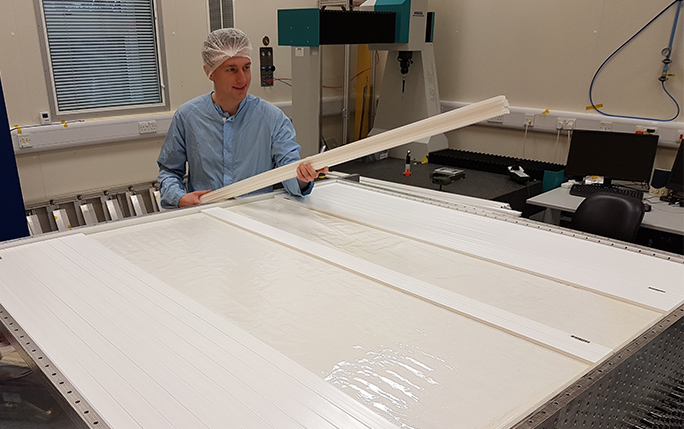CDT Student Interviews – Spotlight on Ron Collins

The 'CDT Spotlight Interviews' series give you a personal insight into work, motivation and challenges of our LIV.DAT students. For this interview we have spoken with Ron Collins who joined the CDT in 2017.
Why are you interested in Physics?
“Physics describes the building blocks of the universe itself. The applications and uses for physics are naturally interesting to me.”
Why do you think Big Data is important?
“More and more experiments are writing out information every year. If we are unable to sift through all of it then the most interesting discoveries will pass us by. It’s very important that those opportunities are not lost.”
What were your biggest misconceptions about working as a researcher before starting your PhD?
“There has been much more data analysis than I expected. That is to say that I expected to have more moments where I found interesting answers. But in science you have to be much more patient than that. False positives are frequent and hypotheses often disproven. You have to work very hard on removing the noise from your data and being very careful to avoid results that fit preconceived notions; that means analysing the same data many more times than one might expect when they start their PhD.”
Which of your experiences or achievements would you use to recommend pursuing a PhD?
“The thrill of discovery is something that can only be experienced properly in academia and there have been several satisfying moments. An example is simulating a physical phenomenon that matches with the measured data. It is then that I know there’s a very good chance my hypothesis is correct.”
Has your PhD experience so far convinced you to pursue an academic career or are you more interested in applying your skills in industry?
“I have no interest in pursuing an academic career. This is simply because I like problem solving and data analysis more than I enjoy pure research. Academia does have this but it is not the only place I can get these kinds of experiences. Having said that, without taking a PhD and the flexibility in work it affords I wouldn’t be able to know what I’m capable of and what I enjoy working on.”
Has Covid-19 impacted your research?
“Yes. The building of the VIDARR detector has been greatly disrupted. The characterisation of said detector was supposed to form a large section of my thesis. The characterisation was replaced with analysing an old data set from the previous deployment at wylfa in order to measure the reactor shadow this is data from 2014 – 2015. Analysing the reactor shadow using cosmic muon tomography was always something that was desired from this data set but until the pandemic there was never time to look at the data.”
At this point in your PhD, what is the achievement you are most proud of?
“I have finally been able to see the shadow from the Wylfa reactor building in our cosmic analysis. This is very exciting because it opens up the possibility for new experiments using cosmic muon tomography at other locations.”